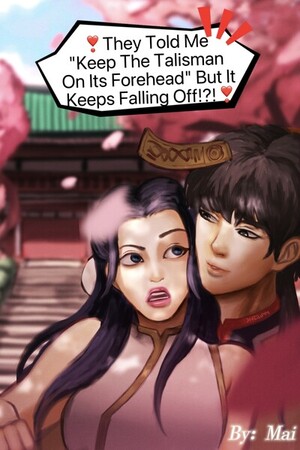Chapter 11:
Totalitarianism
Moritomo High Communist Club
She started laughing after that. Her statement, so outlandish that it couldn’t even be said aloud, throbbed audaciously on the blackboard. After beholding her handiwork for a moment, she underlined the words not once, not twice, but three times: triple emphasis bestowed to something she was evidently very proud of.
Yachi copied the statement down in her notebook, imitating even the lines.
“You don’t really believe it, do you?” I asked my left-seated comrade, eyeing Asako as she scribbled stars and hearts around the board.
“Of course I do,” Yachi murmured. “It has been proven through objective evidence.”
“What objective evidence?” I huffed, raising my voice so Asako could hear me. “This is ridiculous! Communism—socialism, whatever—didn’t work.”
Asako turned around. “Why do you say that?”
“Look at Soviet Russia, which you were praising. It was totalitarian! I don’t remember the exact numbers, but a lot of people died during their ‘socialist’ time. Like, a-lot-a-lot.”
“That’s true,” Asako said, nodding. “A large death tally. Constantly exaggerated, but tragic nonetheless. Do you know why it happened, though?”
“Well, because of the system, I assume. And because… Stalin, right? Stalin was a dictator. He sent them to the gulags. Socialism tends to make dictator people. That’s what I read online.”
“But why? We have to consider the nuance. Is this an innate flaw of socialism, or is it a product of the historical circumstances? Is it… could the real reason be… the source of all bad things in the world, past, present, and future?”
“Please don’t tell me you’re going to blame this on capitalism.”
“You know me too well! In 1918-20, no less than fourteen capitalist nations invaded Soviet Russia. Why? Was it to save the people that had just become free? No, no, no! It was to enslave them once more, because the very existence of true freedom chills capitalists to the core.”
“But considering what the place became, they were right to be worried.”
“Open your eyes, comrade! They are the reason it became that way. Even though they had been at each other’s throats just months earlier, we saw those such as America, Germany, England, Canada, France, and our mighty nation of Japan drop everything to massacre the newly formed Soviet Union, long before they had any idea what it would grow into. The Soviets—I’ll remind you, a bunch of illiterate peasants—were faced by this fourteen-versus-one bullshit, internal sabotage, diplomatic sanctions, and, later, literal genocidal Nazis marching for their country. We all would have loved it if they naturally developed into a more liberal society—as they no doubt tried to—but socialism has never been given the chance to do that.”
“Surely there were other options, though.” I scratched my neck. “Other than becoming some evil empire.”
“Indeed. There were other ways. To defend themselves, though, they implemented rigorous, forced industrialisation, which came at the cost of many lives and involved a particularly brutal penitentiary system. So, yes, the Soviet Union became somewhat totalitarian, not because of socialism, but because of constant assaults by capitalism and fascism. What we call this is siege socialism. It birthed leadership that was misguided, callous, and paranoid, which made some admittedly awful decisions… The world’s greatest socialist experiment was ultimately lost to the winds of time.”
Asako sniffled audibly, then acted as if she were wiping a tear from her eye. Of course, nothing flowed from that soulless caricature of a face.
“That’s what I’m saying, though,” I said, not ready to give up yet. “It failed! It was defeated! Maybe they improved some small things here and there, but ultimately…”
Asako cocked her head. “Here and there? Universal literacy, healthcare for all, full education, full employment, guaranteed housing, doubling life expectancy, all the while triumphing against Nazi Germany, who sought to obliterate them? These are not small things, and they are certainly not here and there. They are colossal and consistent in the world’s most well-known socialist experiment, in spite of relentless war, capitalist sabotage, and poor leadership. Socialism is not the reason they failed; in reality, it is the reason they survived so long at all.” She prodded the blackboard. “It! Always! Works!”
“...Even then, is it worth, like, the atrocities? If so many people have to die and be controlled, is better healthcare worth it?”
“Tut, tut. To accept communism does not mean to blindly follow past attempts. To the contrary, it means we must learn from past failures and decide how to avoid them in future socialist states, while keeping the incredible triumphs.”
“So are you admitting it didn’t fully work?”
“Not at all. The bad bits were all capitalism’s fault.”
My ever-growing exasperation was taking the wind out of me. I glanced off at Yachi’s notebook, seeing lines upon lines. Absurd! She had transcribed this entire trainwreck conversation. I sighed, flabbergasted.
“Listen, comrade,” Asako said, “I am not asking for you to own, as I do, a life-sized Karl Marx body pillow. Of course, if you would like to borrow him for an evening, fine! But if you do not want to, very well. You don’t have to be an unreserved communist. In fact, I would rather you continued your research on the subject. What I am asking is for you to treat this topic with some nuance, and resist the nihilistic urge to dismiss something after only brief brushings with reductive dogma.”
“I mean, I’ll think about it…”
“About borrowing Mister Marx? Oh, good decision! I recommend wrapping your arms around his shapely waist and burying your face in his immense beard. Helps with the sleepless nights.”
“...I don’t want your communist body pillow, Asako.”
“Aren’t you, as they say, an otaku?”
“Karl Marx is not an anime girl.”
“He’s my anime girl.”
“What are you on about now?”
Before she could answer, the door flew open. We turned to see Etsu and Hitomi moving into the room. Hitomi’s glasses slanted diagonally across her face. Etsu, who I hadn’t seen since our first meeting, looked similarly disheveled; her hair, which was short and dark without her bright-blue wig, was strewn like a bird’s nest.
“Comrades!” Asako cried. “So you have returned to us. Well? How did it go?”
“We weren’t successful,” Hitomi grunted, breathing heavily. She sent a hand up to reposition her glasses.
“So sorry,” Etsu mumbled, huffing and puffing herself. “It’s just, there were so many people outside, and we couldn’t sneak in without being seen… O-Oh, thanks, Yachi!” She took a cup of water from Yachi, who had left her notes to service the newcomers.
They stood there, catching their breath. Whatever they had been up to, it had clearly taken a lot out of them.
“So it’s like that…” Asako placed her hands on her lips. “Ack. How bothersome. I must confirm—no one saw you?”
Hitomi and Etsu shook their heads.
“Good. That’s good. Well, I did not expect it to be easy. Comrade Shinzo, we require your very particular set of skills! I regret to inform you that the time for theory is over.”
I visibly wilted, much preferring to stay on the chair, even if it meant being subject to Asako’s propaganda blast. “My set of skills? We’re not going to another protest, are we?”
“No, not that. This task will be much more delicate. There is no room for error. It will require the speed of a cat, the silence of a mouse, and the tyrannical austerity of Joseph Stalin. This time, comrade, we are talking about espionage…”




Please sign in to leave a comment.